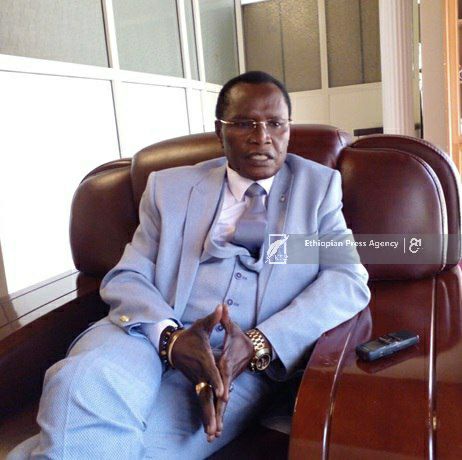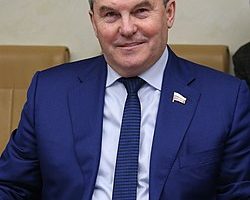
BY GIRMACHEW GASHAW
Today’s guest is Dr. James Petia Morgan, South Sudan Ambassador to Ethiopia. He is also a permanent representative to the African Union, United Nations Economic Commission for Africa (UNECA) and representative to IGAD here in Addis Ababa.
The Ethiopian Herald has made a short stay with Ambassador Morgan and talked about regional issues focusing on the multifaceted bilateral relationship between Ethiopia and South Sudan. Excerpts:
Since South Sudan became an independent State, how do you see the status of bilateral relations between the two countries?
The relationship between South Sudan and Ethiopia is very historic one and has really no way of measuring it as it is beyond relations. It is beyond economic and political cooperation. It is a trans-boundary communication based interaction between the two peoples. The people of Ethiopia and South Sudan are just like one people living in two countries.
We like Ethiopia and Ethiopians do the same to South Sudanese. As the bond between them is beyond words, one cannot describe it simply. The tie between the two sides is far away from economic, political and other affairs. It is a real relationship that has existed for times immemorial. So, we consider Ethiopia as our home, as well as Ethiopians can considers South Sudan as their home. That is how the relations between the two countries are described shortly.
In economic terms, Ethiopia has been engaging in the banking sector and now seems the time for telecom. How do you explain the current economic relation of the two countries?
We have done much. Look, first of all, let me raise some points in relation to capacity building. Ethiopia has given South Sudanese students a lot of scholarships and they are now studying in Ethiopia in various universities. Since the time we became independent in 2011, the two countries have signed a lot of memorandum of understandings with Ethiopia. One of the most important things was capacity building through government scholarships. So far, Ethiopia has given us a lot of scholarships.
Secondly, at this moment, we want to open the roads that will connect Juba and Addis Ababa because people to people relations is not enough only by aircraft. I will be enough by raod, where our citizens can move freely from Ethiopia to South Sudan and vice versa. There will be freedome of movement. We also want to stamp out the issue of the visa so that the people can move freely without a visa simply holding the identity card. A citizen of Ethiopia is coming to South Sudan and we will do it stage by stage.
So, economically, yes, we are looking to integrate some of the economical factors. For instance, South Sudan produces a lot of oil, so we need this oil to be available for the Ethiopian market. On the Ethiopian side, the Renaissance dam will provide electricity. South Sudan will also benefit from this electricity. So, it is just a way we can be able to work together on those areas. Very soon, I think the roads will start.
Our vice president says that the road should be open and the tarmacking of the road will follow later. The road must open so that big cars can be able to move from Addis Ababa to Gambella all the way up to South Sudan. That is one thing that we want to achieve within the shortest time possible.
Would you tell me about the progress of the peace deal between South Sudanese warring parties?
We are still continuing the implementation of the revitalizing peace agreement which was signed in Addis Ababa on Sept 12, 2018. We were supposed to have accomplished the interim period in the last three years. But when the COVID 19 came, some of the articles of the agreement were not accomplished. Now, the government and other political parties that were parties to the agreement have decided that we should extend the interim period for another two years and we are now working together. We call it the roadmap.
So working on this road map continues implementing the peace agreement which is better because we do not want another party again to decide to go to war. That is why all the parties signed the agreement, we all came together and produced this road map as a mechanism to make us continue all the articles of agreement are accomplished and the country now will go to the elections. And after the end of the road map, the election will take place in South Sudan and the elected government will now be able to lead the people of South Sudan to the next stage. This is very important to all of us. When there is peace in South Sudan, there is peace in Ethiopia and elsewhere in the horn countries.
Our region can prosper. Our region will now focus on our important agendas starting from agenda 2020 which we are now in. [Through] agenda 2020 Africa union was calling for the silencing of guns in Africa. Our region is a region that suffers from so many political and insecurity issues and so on. It is good now that with this peace agreement, be it in South Sudan or in Ethiopia, is also able to reach out to establish peace with Eritrea and the rest
of the region is peaceful. We then focus on the agenda 2030 which is calling for sustainable development. This agenda 2030 will prepare the region to be ready for agenda 2063 as each of the regions has been given the responsibility to be ready for it.
Our region has to integrate itself politically, economically and socially. The region has also been connected through infrastructure development such as connectivity of the roads which can connect the whole region. We now have major other programmes which connect the whole of Africa by roads, trains, airways and so on. So these will be some of the important things that we are going to focus on. Our region should not be left behind because the other four regions, The Southern African Development Community (SADC), Economic Community of West African States (ECOWAS), and Economic Community of Central African States (ECCAS) in Central Africa and in North Africa are doing enough.
So why do we waste our time on security issues fighting inside and displacement of citizens. Then, at the end of the day we will not be able to catch up with the entire region. Agenda 2063 will find us as still not integrated or not developed. And we have not done anything. So we will be left behind. So we need to work together. So, the horn of Africa, IGAD and the East Africa region should be ready to meet the requirement under protocols of agenda 2063.
How do you see the support coming from the international community for the east Africa region in general and South Sudan in particular?
We have friends from the international community who always call them development partners. The most important thing is peace. If you call partners in the absence of internal peace, they do not want to be with you. So the work of peace and stability of the region really rests with us. We are the ones who are responsible for that and the rest of the things will follow. Once we are able to stabilize our region then the development partners can come and help us. The responsibility of peace and security is totally in our hands. And that is what we always want.
As you know, for two years, there has been a kind of turmoil. So now there is a peace agreement that is signed first in Pretoria, South Africa and later in Nairobi. There is a new atmosphere. What is the significance of this peace deal to the horn in general?
Yes. First of all, when the crisis started in Northern Ethiopia, specifically in the Tigray State, all of us were very sad because we did not want Ethiopia to go to war. Ethiopia has a very important role in our region. And that role is, supporting the region in the way of how we can resolve our issues peacefully without going to war.
We have seen that on many occasions when South Sudan has got problems, we always come here. So our problems have been resolved here in Ethiopia since the time of the Emperor, 1972, all the way. If there is any problem in South Sudan, we always bring it to Ethiopia to find the solution. So when the war situation started in Ethiopia, my president, General Salva Kiir Mayardit was the first leader in the region who called for peace. He wanted the issue of northern Ethiopia to be resolved through peaceful means. And, even if the war broke out, he did not stop calling for peace.
And we are so grateful now that the Peace finally has come. We all appreciate the signing of the Peace deal in Pretoria and the ongoing implementation process in Nairobi. Because these days we think that all of us had been hoping for Ethiopia to come back to peace as the strength of Ethiopia depends on its unity.
When Ethiopia is united, that is when it is strong. We didn’t want what was going on. It was not in our interest at all. It was not even in the interest of the people of this region or the continent in general. Africa did not like it. But now we are so grateful that peace is being restored.
The ongoing implementation process the Nairobi [agreement] is just a process which we believe is a mechanism to put things on our back together. So, I am grateful also. We also wish that the last two years, we call them the dark years of Ethiopia and it will never come back again.
Ethiopia from now on should keep working together. The citizens of Ethiopia should now consider themselves that because in fact nobody knows that Ethiopia was having tribes, we consider them as Ethiopians. So now they need to come back to where they were before in order to achieve that glory, which existed years and years back. So, we are so grateful about that.
As you are the representative of IGAD, What is the impact for the region as a whole?
Yeah, of course. In IGAD, we have a program, which is a call for the free movement of the people of the Horn of Africa, the IGAD region. When we have a problem in one of our member states, that problem affects the rest of the member states. Our programs, like the free movement of the people, integrate the region, economically and politically, all these things are put aside whenever there is a problem.
So the impact of the crisis in any member state affects all of us as a region. What happened in Ethiopia was affecting us all as a region. But now that peace has come and we are so grateful because it is for our own benefit as a region first. Before it becomes a benefit for anybody else we are the ones who are the direct beneficiaries of the peace of the region. And we are so grateful about that.
Recently, Ethio-telecom signed an agreement with the telecom of South Sudan. If you know anything about that, I want you to add on that. Would you tell us the impact it would have on the economy of the two countries?
The agreement was about operating telecom in South Sudan. You see that is what we call integration. Recently, Kenya launched the Safaricom here and Ethiopia is launching also the Tele in Juba, South Sudan. That is what we call economic integration. We have the commercial Bank of Ethiopia operating already in Juba a long time ago. This is what we call economic integration. I do appreciate anything that is a sign with the aim of bringing the region together be it politically, economically, socially and all that can bring the people of the region together is a benefit to us. We appreciate it.
I also wish you a Happy New Year and I wish the people of Ethiopia that this New Year that is coming with a lot of joy and happiness. Now there is peace in the country, there is a free movement of the people in the country. The flights to Mekele have resumed and now everybody in Ethiopia is free to move the way they want. This is appreciation that Ethiopia has come back to where it was before. So we greet all the people of Ethiopia and we wish them a happy New Year.
Thank you very much.
Thank you.
The Ethiopian Herald January 21/2023





